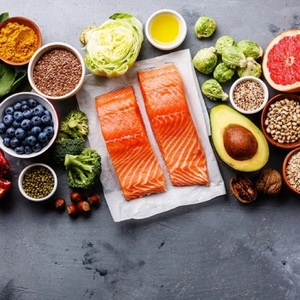Blog Information
- منشور من طرف : Prevention Only
- نشر على : Apr 07, 2023
- الآراء : 238
- الفئة : جنرال لواء
- وصف : This Blog discusses the importance of managing high blood pressure and offers practical tips for avoiding certain foods that can contribute to hypertension. The article outlines seven specific foods to avoid, including salt, fried and fatty foods, processed meats, sugar and sugary drinks, alcohol, caffeine, and pickles.
- موقعك : Cleveland, OH, USA
نظرة عامة
High blood pressure, also known as hypertension, is a common condition that affects millions of people worldwide. It occurs when the force of blood against the walls of the arteries is too high, leading to health problems such as heart disease, stroke, and kidney damage. While medication and lifestyle changes can help manage high blood pressure, avoiding certain foods is also crucial.
Here are some foods to avoid if you have high blood pressure:
-
Salt: Salt is a significant contributor to high blood pressure. Sodium, a mineral found in salt, can cause the body to retain water, which increases blood pressure. Avoid processed foods, canned soups, and salty snacks, and try to limit your salt intake to no more than 2,300 milligrams per day.
-
Fried and fatty foods: Fried and fatty foods are high in calories and can cause weight gain, which increases blood pressure. These foods also contain unhealthy fats that can raise your cholesterol levels, which can also contribute to hypertension. Opt for grilled, baked, or steamed foods instead.
-
Processed meats: Processed meats, such as bacon, sausage, and deli meats, are high in salt and saturated fats, which can raise your blood pressure and increase your risk of heart disease. Try to limit your intake of processed meats or opt for leaner, lower-sodium options.
-
Sugar and sugary drinks: Consuming too much sugar and sugary drinks can lead to weight gain and increase your risk of developing high blood pressure. Soda, sports drinks, and energy drinks are all high in sugar and can cause a spike in blood pressure. Opt for water, unsweetened tea, or low-sugar drinks instead.
-
Alcohol: Drinking too much alcohol can raise your blood pressure and damage your heart and liver. If you drink alcohol, do so in moderation, which means up to one drink per day for women and up to two drinks per day for men.
-
Caffeine: While caffeine is generally safe, consuming too much can increase your blood pressure. If you have high blood pressure, limit your caffeine intake to no more than 200 milligrams per day, which is roughly one cup of coffee.
-
Pickles: Pickles are often high in sodium and can contribute to high blood pressure. If you love pickles, opt for low-sodium versions or make your pickles at home with less salt.
In conclusion, a healthy diet is crucial for managing high blood pressure. Avoiding salty, fatty, and processed foods, sugary drinks, alcohol, and too much caffeine can help lower your blood pressure and reduce your risk of developing heart disease, stroke, and kidney damage. Be sure to talk to your healthcare provider or a registered dietitian to create a personalized nutrition plan that fits your health needs.-
